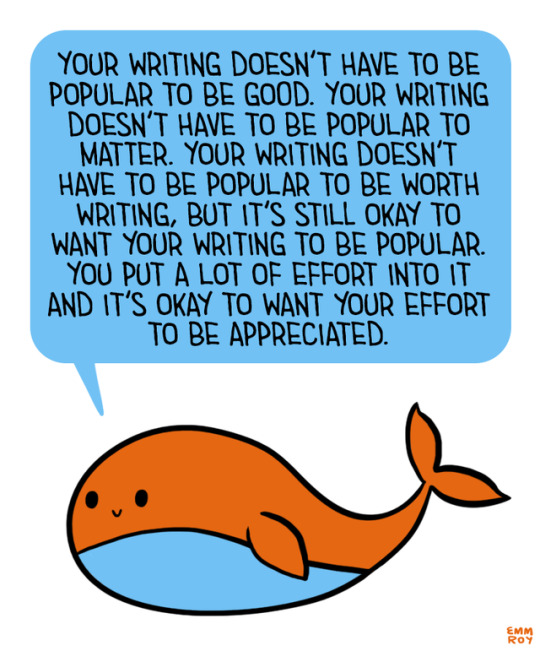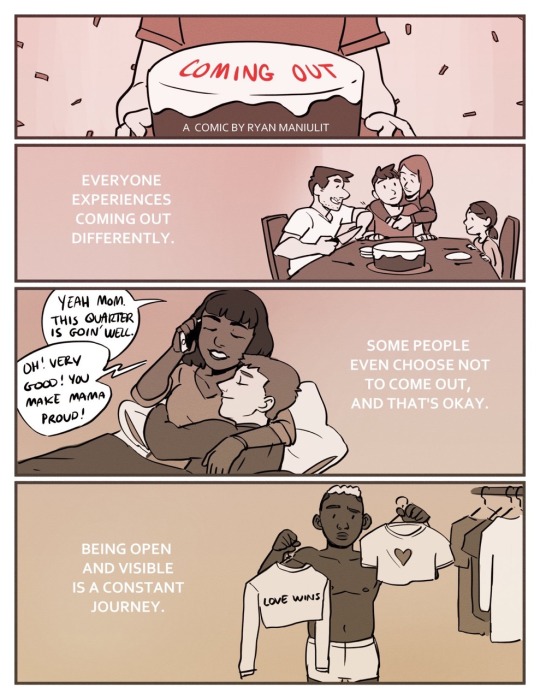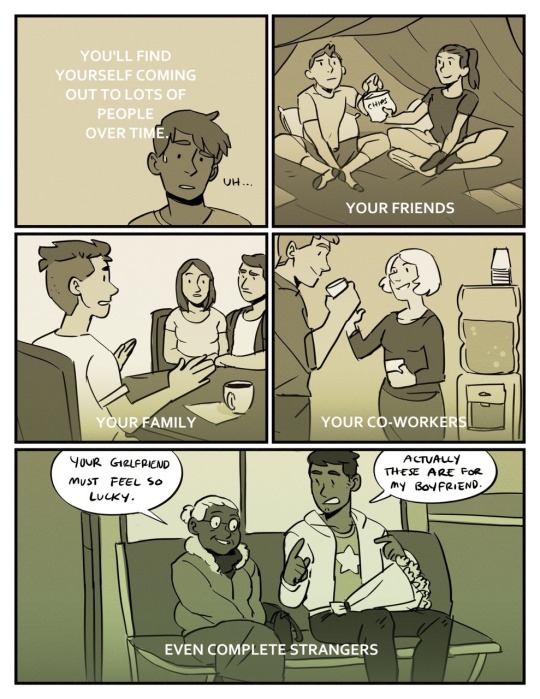Text
writer emotions
In The Zone
Inspiration level of dried up mud
Idea chaos cavorting through your head like bunnies on crack, never making it onto the paper
AAAAAAAAAAAAAAAAAAAAAAAAAAAAAAAAAAAAAAAAAAAAAAAAAAAAAAAAAAAAAAAAAAAAAAAAAAAAAAAAAAAAAAAAAAAAAAAAAAAAAAAAAAAAAAAAAAAAAAAAAA
o shit its 3 am
cat lugubriously puking small and pathetic hairballs onto paper
after-submission cold sweat
i’m going to break my character’s hands in the next chapter *laugh of evil glee*
typing sad scene while crying
reading the chapter you wrote late last night confusion
guilty trickle of procrastination
slamming face against desk headache
worldbuildgasm
writing fan fiction of own books daydream
i am the next tolkien
i am the next rejected sack of shit to be yeeted out of a publisher’s back door
clever metaphor delight
drained exhaustion after writing a couple thousand words
euphoric, exhausted emptiness of finishing a book
rereading first draft nausea
research hole
screaming at wikipedia
overwhelmed by the mess youve made
cheeto dust on the keyboard mid-writing snacking
typo typo typo
what do i write next existential crisis
when your brain does the nope
10K notes
·
View notes
Link
Hey guys! Be sure to give my book, BRYN, a read! The higher the rating, the greater the chance it will be selected for publication.
4 notes
·
View notes
Photo

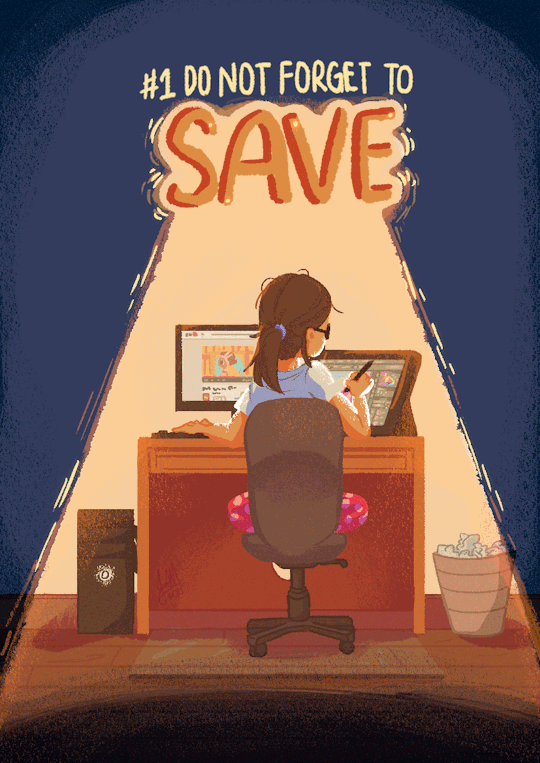
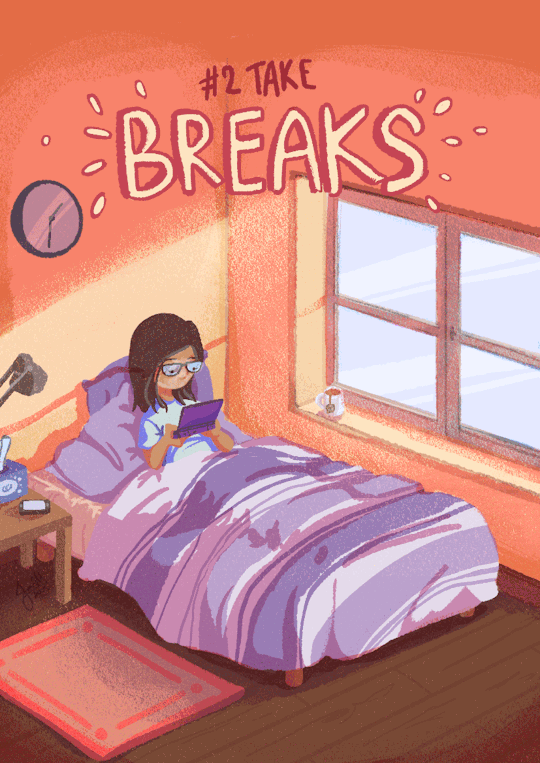

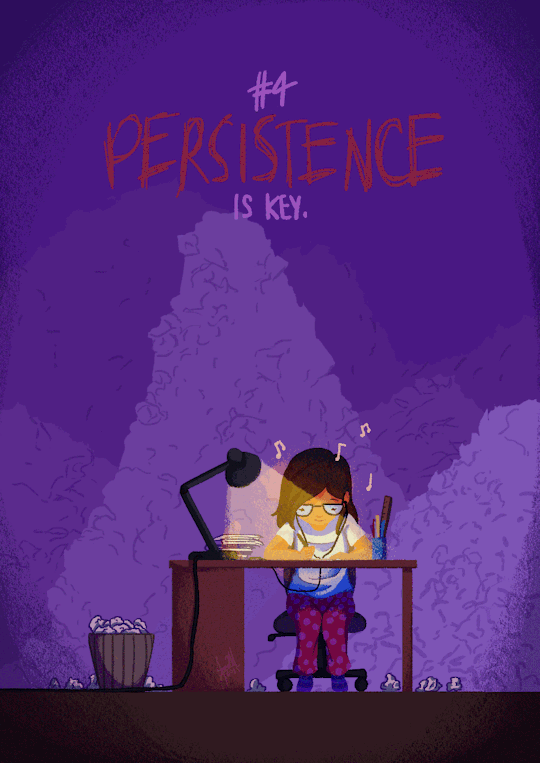

some things I need to remind myself daily tbh
385K notes
·
View notes
Text
I cannot emphasize enough how much you need to read thoroughly through the terms of any publication before you send your writing to them. It is mandatory that you know and understand what rights you’re giving away when you’re trying to get published.
Just the other day I was emailed by a relatively new indie journal looking for writers. They made it very clear that they did not pay writers for their work, so I figured I’d probably be passing, but I took a look at their Copyright policy out of curiosity and it was a nightmare. They wanted “non-exclusive, irrevocable, royalty-free, perpetual, worldwide license and right to use, display, reproduce, distribute, and publish the Work on the internet and on or in any medium” (that’s copy and pasted btw) and that was the first of 10 sections on their Copyright agreement page. Yikes. That’s exactly the type of publishing nightmare you don’t want to be trapped in.
Most journals will ask for “First North American Rights” or a variation on “First Rights” which operate under the assumption that all right revert back to you and they only have the right to be the first publishers of the work. That is what you need to be looking for because you do want to retain all the rights to your work.
You want all rights to revert back to you upon publication in case you, say, want to publish it again in the future or use it for a bookmark or post it on your blog, or anything else you might want to do with the writing you worked hard on. Any time a publisher wants more than that, be very suspicious. Anyone who wants to own your work forever and be able to do whatever they want with it without your permission is not to be trusted. Anyone who wants all that and wants you to sign away your right to ever be paid for your work is running a scam.
Protect your writing. It’s not just your intellectual property, it’s also your baby. You worked hard on it. You need to do the extra research to protect yourself so that a scammer (or even a well meaning start up) doesn’t steal you work right from under you nose and make money off of it.
73K notes
·
View notes
Text
Young Adult vs. New Adult
What’s the Difference, Anyway?
So many people seem to think YA and NA are the same thing, or NA is YA but with the sex. Have a bullet list from someone who’s tired of seeing them lumped into the same category.
Young Adult
the target audience is 12 to 18 years old
the protagonists are usually kiddos that still live at home and need their parents’ signatures on official documents
themes commonly work with personal relationships on an emotional level, and do a lot of coming-of-age/coming-into-ones-own-identity
sex, swearing, and violence are all watered down for a younger audience
New Adult
the target audience is 18 to 30 years old
the protagonists are of the moving-out age and can start making the big decisions on their own
themes commonly encompass the overall lifestyle shift of taking on adult responsibilities, moving away from home, and dealing with the consequences of the aforementioned big decisions
there is potential the sex, and the swearing, and the violence
These are incomplete lists, but the point is please, please, please stop equating these two different, but equally valuable, genres.
10K notes
·
View notes
Text
Reminders for the Anxious/Depressed Creatives
You’re more than what you make.
Your productivity does not determine your value.
It’s okay to do nothing sometimes.
Not everything you do has to result in a product.
Not everything you make has to be important, significant, or even good.
You can make things just for yourself.
You can keep secrets for yourself, whether it’s not posting some of your projects or not sharing your techniques.
You’re allowed to say no.
You’re allowed to rest.
119K notes
·
View notes
Photo
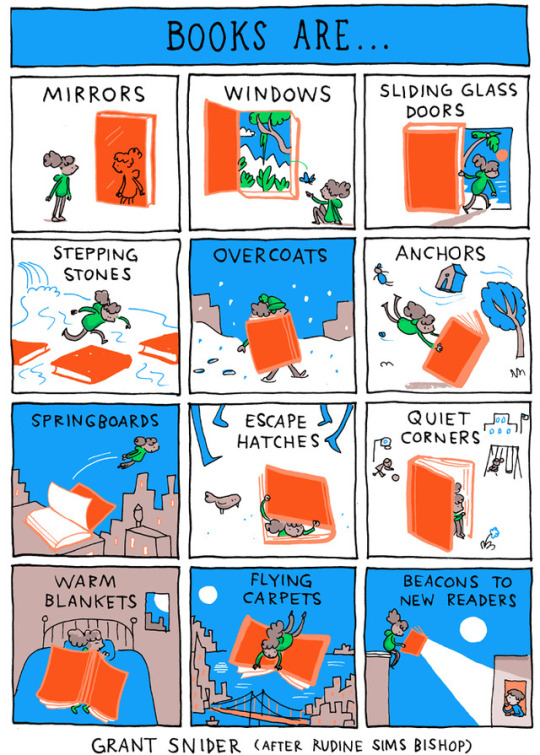
Books Are..
New comic for The Southampton Review!
Posters are available at my shop.
7K notes
·
View notes
Text
Hey. You there. Aspiring author. Keep writing. The world needs your words. Every single author - big and small, indie and trad, young and old - once stood where you stand, wondering if they were kidding themselves. Keep going. You got this.
18K notes
·
View notes
Photo
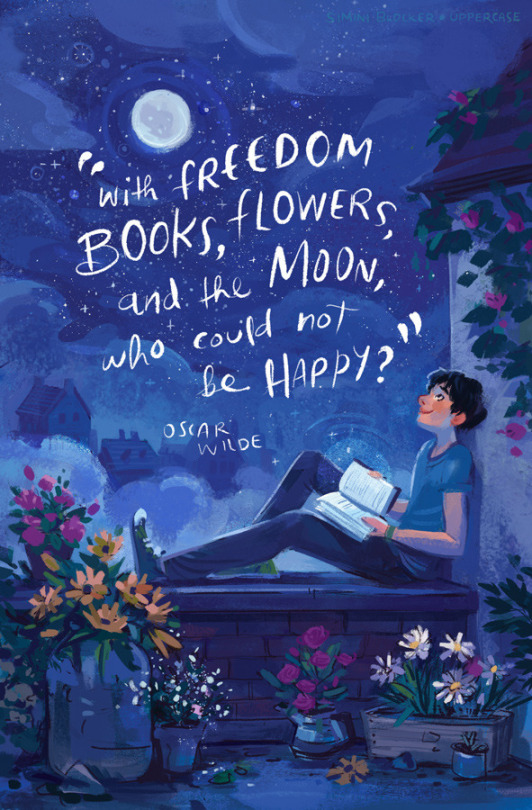
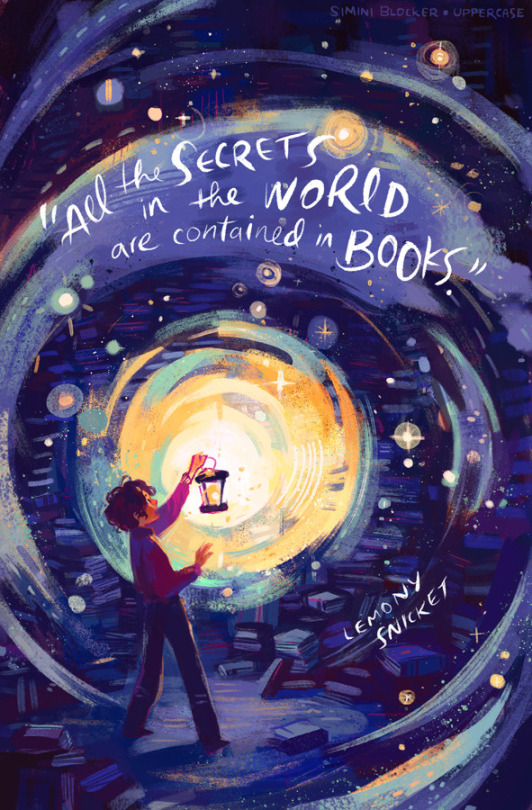
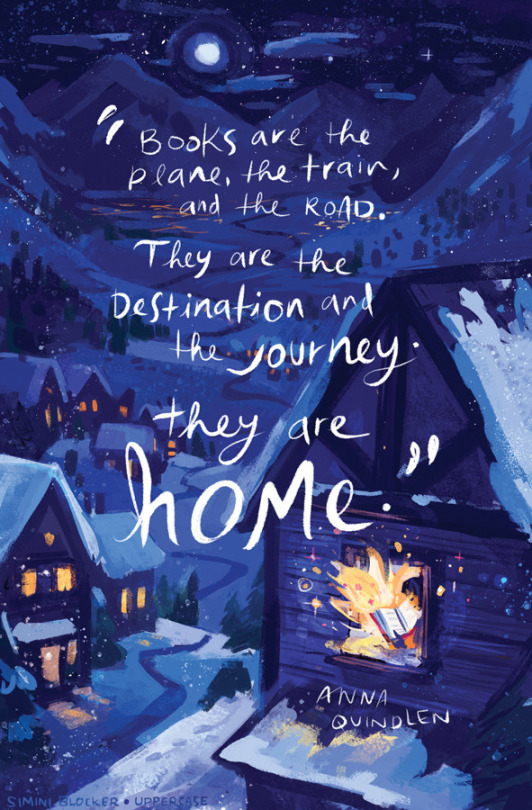

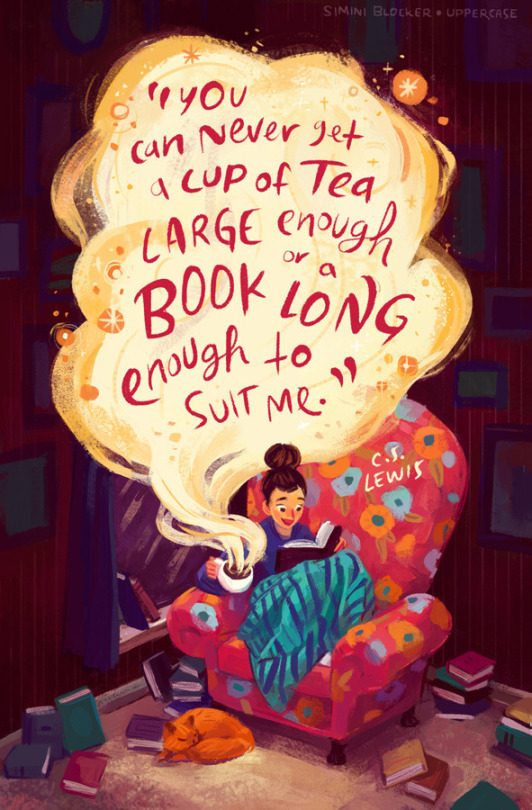
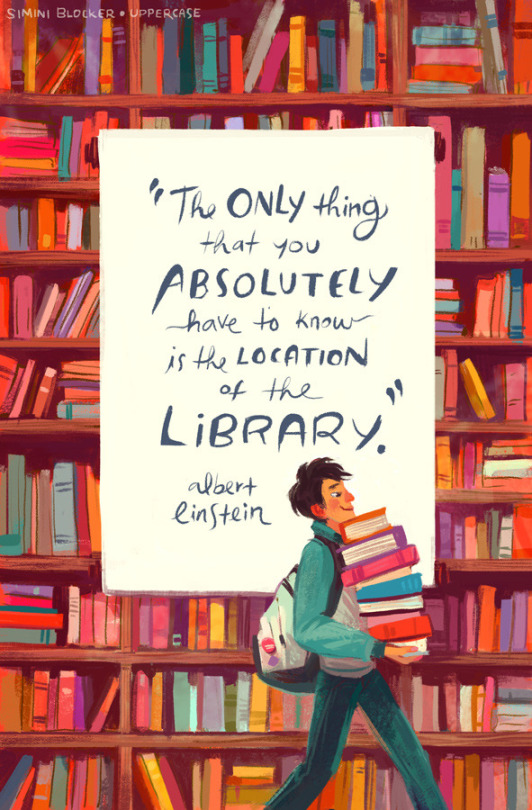

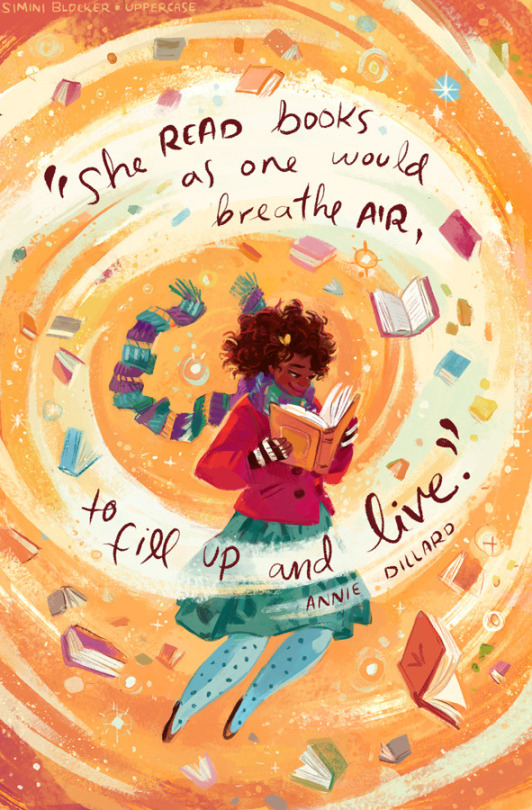
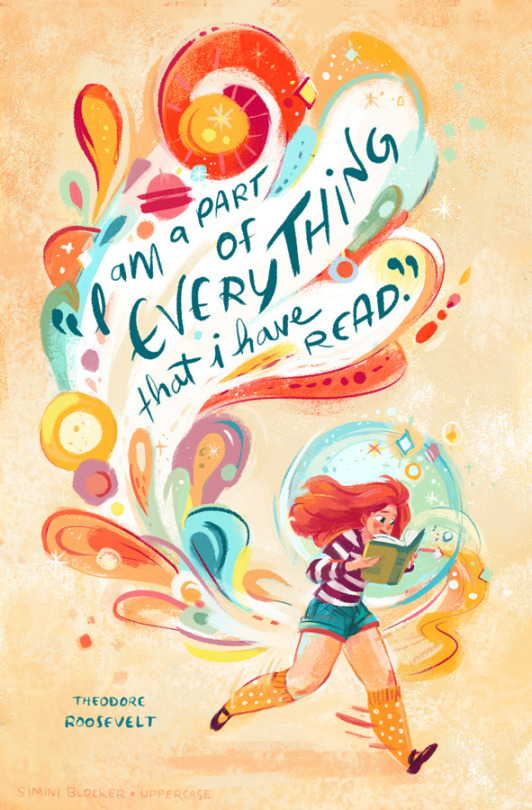

Enchanting Bookworm Inspired Digital Illustrations by Simini Blocker
NYC based illustrator Simini Blocker understands the enchanting world bookworms revel in. From Hogwarts to Neverland or King’s Landing, Blocker captures the spellbinding imaginative realms literature has introduced to us with vibrant colours, gorgeous brushstrokes and fitting quotes from our favourite authors. You can find her gorgeous illustrations on Society6 and Etsy.
View similar posts here!
Читать дальше
107K notes
·
View notes
Photo

Quotable - Dorothy Parker
Find out more about the author here
85 notes
·
View notes
Text
Are These Filter Words Weakening Your Story?
After putting my writing on hold for several weeks, I decided to jump back in. I expected to find all sorts of problems with my story–inconsistencies in the plot, lack of transitions, poor characterization–the works. But what began to stick out to me was something to which I’d given little thought in writing.
Filter words.
What are Filter Words?
Actually, I didn’t even know these insidious creatures had a name until I started combing the internet for info.
Filter words are those that unnecessarily filter the reader’s experience through a character’s point of view. Dark Angel’s Blog says:
“Filtering” is when you place a character between the detail you want to present and the reader. The term was started by Janet Burroway in her book On Writing.
In terms of example, you should watch out for:
To see
To hear
To think
To touch
To wonder
To realize
To watch
To look
To seem
To feel (or feel like)
Can
To decide
To sound (or sound like)
To know
I’m being honest when I say my manuscript is filled with these words, and the majority of them need to be edited out.
What do Filter Words Look Like?
Let’s imagine a character in your novel is walking down a street during peak hour.
You might, for example, write:
Sarah felt a sinking feeling as she realized she’d forgotten her purse back at the cafe across the street. She saw cars filing past, their bumpers end-to-end. She heard the impatient honk of horns and wondered how she could quickly cross the busy road before someone took off with her bag. But the traffic seemed impenetrable, and she decided to run to the intersection at the end of the block.
Eliminating the bolded words removes the filters that distances us, the readers, from this character’s experience:
Sarah’s stomach sank. Her purse—she’d forgotten it back at the cafe across the street. Cars filed past, their bumpers end-to-end. Horns honked impatiently. Could she make it across the road before someone took off with her bag? She ran past the impenetrable stream of traffic, toward the intersection at the end of the block.
Are Filter Words Ever Acceptable?
Of course, there are usually exceptions to every rule.
Just because filter words tend to be weak doesn’t mean they never have a place in our writing. Sometimes they are helpful and even necessary.
Susan Dennard of Let The Words Flow writes that we should use filter words when they are critical to the meaning of the sentence.
If there’s no better way to phrase something than to use a filter word, then it’s probably okay to do so.
Want to know more?
Read these other helpful articles on filter words and more great writing tips:
Filter Words and Distancing Point of View
The Reasons Editors reject Manuscripts
Filter Those words and Strengthen Your Writing
44K notes
·
View notes
Text
The Strength of a Symmetrical Plot
One of my favorite studies of Harry Potter is that of the ring composition found both in the individual novels and overall composition. That very composition is what makes Harry Potter such a satisfying story. It’s a large part of the reason Harry Potter is destined to become a classic.
And it’s an integral part of the series many people are completely unaware of.
So what is ring composition?
It’s a well-worn, beautiful, and (frankly) very satisfying way of structuring a story. John Granger, known online as The Hogwarts Professor, has written extensively on it.
Ring Composition is also known as “chiastic structure.” Basically, it’s when writing is structured symmetrically, mirroring itself: ABBA or ABCBA.
Poems can be structured this way. Sentences can be structured this way. (Ask not what your country can do for you — ask what you can do for your country.) Stories of any length and of any form can be structured this way.
In a novel, the basic structure depends on three key scenes: the catalyst, the crux, and the closing.
The catalyst sets the story into the motion.
The crux is the moment when everything changes. (It is not the climax).
The closing, is both the result of the crux and a return to the catalyst.
In Harry Potter, you might recognise this structure:
Voldemort casts a killing curse on Harry and doesn’t die.
Voldemort attempts to come back to power
Voldemort comes back to power.
Harry learns what it will take to remove Voldemort from power.
Voldemort casts a killing curse on Harry and dies.
But all stories should have this structure. A book’s ending should always reference its beginning. It should always be the result of some major turning point along the way. Otherwise, it simply wouldn’t be a very good story.
What’s most satisfying about chiastic structure is not the basic ABA structure, but the mirroring that happens in between these three major story points.
To illustrate what a more complicated ABCDEFGFEDCBA structure looks like, (but not as complicated as Harry Potter’s, which you can see here and here) Susan Raab has put together a fantastic visual of ring composition in Beauty and the Beast (1991), a movie which most agree is almost perfectly structured.
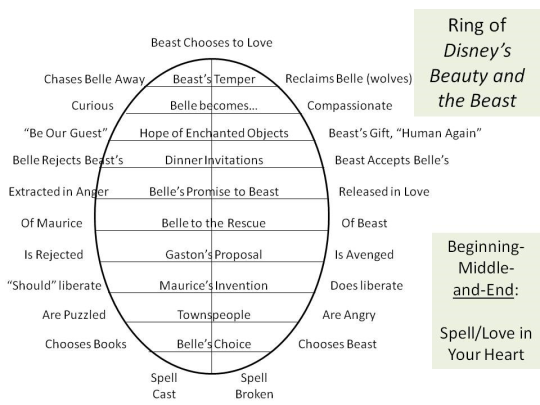
source: x
What’s so wonderful about ring composition in this story is that it so clearly illustrates how that one crucial decision of Beast changes everything in the world of the story. Everything from the first half of the story comes back in the second half, effected by Beast’s decision. This gives every plot point more weight because it ties them all to the larger story arc. What’s more, because it’s so self-referential, everything feels tidy and complete. Because everything has some level of importance, the world feels more fully realized and fleshed out. No small detail is left unexplored.
How great would Beauty and the Beast be if Gaston hadn’t proposed to Belle in the opening, but was introduced later on as a hunter who simply wanted to kill a big monster? Or if, after the magnificent opening song, the townspeople had nothing to do with the rest of the movie? Or if Maurice’s invention had never been mentioned again after he left the castle?
Humans are nostalgic beings. We love returning to old things. We don’t want the things we love to be forgotten.
This is true of readers, too.
We love seeing story elements return to us. We love to know that no matter how the story is progressing, those events that occurred as we were falling in love with it are still as important to the story itself as they are to us. There is something inside us all that delights in seeing Harry leave Privet Dr. the same way he got there–in the sidecar of Hagrid’s motorbike. There’s a power to it that would make any other exit from Privet Dr. lesser.
On a less poetic note, readers don’t like to feel as though they’ve wasted their time reading about something, investing in something, that doesn’t feel very important to the story. If Gaston proposed to Belle in Act 1 and did nothing in Act 3, readers might ask “Why was he even in the movie then? Why couldn’t we have spent more time talking about x instead?” Many people do ask similar questions of plot points and characters that are important in one half of a movie or book, but don’t feature in the rest of it.
Now, ring composition is odiously difficult to write, but even if you can’t make your story a perfect mirror of itself, don’t let story elements leave quietly. Let things echo where you can–small moments, big moments, decisions, characters, places, jokes.
It’s the simplest way of building a story structure that will satisfy its readers.
If there’s no place for something to echo, if an element drops out of the story half-way through, or appears in the last act, and you simply can’t see any other way around it, you may want to ask yourself if it’s truly important enough to earn its place in your story.
Further reading:
If you’d like to learn more about ring theory, I’d recommend listening to the Mugglenet Academia episode on it: x
You can also read more about symmetry in HP here: x
And more about ring structure in Lolita and Star Wars here: x and x
And about why story endings and beginnings should be linked here: x
16K notes
·
View notes
Text
Reblog if you would be comfortable living in a dormitory with an openly transgender or intersex individual. We’re working on a campaign for gender neutral housing and we could use your support.
241K notes
·
View notes






